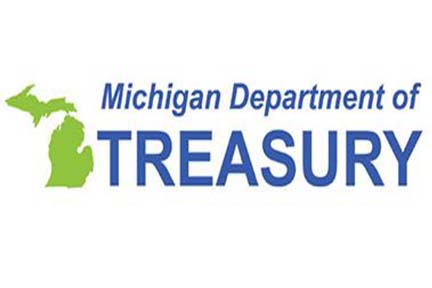
by orionontv | May 14, 2025 | Regional News
FOR IMMEDIATE RELEASE
May 13, 2025
Contact: Ron Leix, Treasury, 517-335-2167
More Than $150 Million Returned to Rightful Owners and Heirs Last Fiscal Year
LANSING, Mich. – While trees are in full bloom and many Michiganders are in the midst of spring cleaning, Michigan Unclaimed Property is also getting into the act, rolling out a fresh new look and feel of its own.
Visitors to Michigan Unclaimed Property’s website will find an updated design, highlighted by refreshed colors, better usability and easier-to-follow directions for claiming property.
“I encourage individuals and business representatives to visit our refreshed website to see if we may be holding property in their name or in the name of their business,” said Terry Stanton, who oversees Michigan’s Unclaimed Property Program. “Our unclaimed property database is updated throughout the year, so just like spring cleaning, an annual check of our site is always a good idea.”
Michigan Unclaimed Property, within the Michigan Department of Treasury, is the custodian of millions of dollars in lost or forgotten assets, including dormant bank accounts, uncashed checks, stock certificates, and valuables left in abandoned safe deposit boxes. These properties are turned over to the state once they are determined to be lost or abandoned, as required by law.
Michigan Unclaimed Property then works to reunite the properties with their rightful owners — or the owners’ heirs.
Michigan Unclaimed Property returned more than $150 million to rightful owners or their heirs last fiscal year.
Listen now
The Treasury Talk PODCAST, hosted by State Treasurer Rachael Eubanks, features Stanton and Unclaimed Property in a recent episode: “How to Find Your Missing Money.”
Listeners are encouraged to search Michigan.gov/UnclaimedProperty for themselves and for family members – this time of year, some extra cash is always nice when planning a spring vacation.

by orionontv | May 14, 2025 | Feature Writers, High School Sports
Girls Lacrosse Regionals-2025
Written Wednesday March 12th at 4:23 PM

Regional 2 at Brighton
Detroit Cass Tech vs Ann Arbor Huron
Detroit Cass Tech/Ann Arbor Huron vs South Lyon
Plymouth vs Plymouth Canton
Plymouth/Plymouth Canton vs Plymouth Salem
Northville vs Livonia United
Northville/Livonia United vs Brighton
FARMINGTON UNITED vs Ann Arbor Pioneer
Novi vs Walled Lake United
EARLY THOUGHTS: This looks to be a really interesting regional. Brighton is loaded with proven experience. I don’t see anyone in this regional that can beat the Bulldogs not a home.
Regional 3 at West Bloomfield
BLOOMFIELD HILLS vs Grosse Pointe North
BLOOMFIELD HILLS/Grosse Pointe North vs Grosse Pointe South
Utica Eisenhower vs Chippewa Valley/Dakota
Utica Eisenhower/Chippewa Valley/Dakota vs Utica/Utica Ford II
TROY vs M-1 (ROYAL OAK/BERKLEY)
TROY/M-1 vs BIRMINGHAM
ROCHESTER vs Bloomfield Hills Cranbrook-Kingswood
TROY ATHENS vs WEST BLOOMFIELD
EARLY THOUGHTS: This regional could see Birmingham vs Bloomfield Hills in a rematch although Bloomfield Hills Cranbrook-Kingswood could challenge. This could be a repeat of the past or something different.
Regional 4 at Hartland
CLARKSTON vs Grand Blanc
CLARKSTON/Grand Blanc vs LAKE ORION
OXFORD vs Fenton
OXFORD/Fenton vs Waterford United
Lansing Catholic vs Howell
Lansing Catholic/Howell vs Lansing Holt
Hartland vs Davison
Midland United vs Huron Valley
EARLY THOUGHTS: This regional looks like it has Hartland written all over it. They have home field. Lake Orion and Grand Blanc look to be the top challengers to the Eagles in this regional. Oxford is the sleeper.
Regional 7 at Stoney Creek
Pontiac Notre Dame Prep vs Holly/Brandon
Pontiac Notre Dame Prep/Holly/Brandon vs Birmingham Detroit Country Day
Second Round:
STONEY CREEK vs Lapeer
Mt. Clemens Sacred Heart Academy/Madison Heights Bishop Foley/Waterford Our Lady of the Lakes vs Warren Regina
Sacred Heart/Bishop Foley/WOLL/Warren Regina vs ADAMS
Birmingham Marian vs AVONDALE
Birmingham Marian/AVONDALE vs Grosse Pointe University Liggett
EARLY THOUGHTS: This is a really interesting regional. Five teams have a chance to win this district in Grosse Pointe University Liggett, Warren Regina, Birmingham Marian, Birmingham Detroit Country Day, and Stoney Creek. Pontiac Notre Dame Prep is the wildcard. This should be

by orionontv | May 14, 2025 | Feature Writers, High School Sports
Boys Lacrosse Regionals-2025
Written Wednesday March 12th at 4:30 PM

Regional 3 @ Clarkston
Hartland vs Brandon/Holly
OXFORD vs Bay City Central (Frankemuth/Freeland)
CLARKSTON vs Davison
Grand Blanc vs Swartz Creek/Flushing
EARLY THOUGHTS: We could be on a collision course between two powerhouses in Clarkston and Hartland which could be a tense drama in the regional final. Grand Blanc is a sleeper but this has Wolves and Eagles all over it.
Regional 4 @ Troy Athens
Birmingham Brother Rice vs TROY ATHENS/AVONDALE
Utica Eisenhower/Utica vs Waterford United
Romeo vs ROCHESTER
ADAMS vs TROY
EARLY THOUGHTS: This is a tough regional for anyone having to deal with Birmingham Brother Rice. The Warriors are loaded every season. No one is touching Birmingham Brother Rice in this regional.
Regional 5 @ Lake Orion
New Baltimore Anchor Bay vs Chippewa Valley
New Baltimore Anchor Bay/Chippewa Valley vs LAKE ORION
Macomb Dakota vs St. Clair (Marine City/Marysville)
Macomb Lutheran North vs Port Huron Unified
EARLY THOUGHTS: This looks to be a really interesting regional, no one stands out to challenge Lake Orion, maybe Macomb Dakota but this regional looks to be painted in green and white early.
Regional 6 @ Seaholm
BIRMINGHAM UNITED vs FARMINGTON UNITED
BLOOMFIELD HILLS vs WEST BLOOMFIELD
Livonia Stevenson vs Detroit Cass Tech
M-1 vs Brownstown Woodhaven
EARLY THOUGHTS: Could this be the year Bloomfield Hills and Birmingham have a rematch in the regional finals, it looks possible. This is anyone’s regional to take it’s wide open.
Regional 14 @ Stoney Creek
Birmingham Detroit Country Day vs Madison Heights Bishop Foley (Macomb Lutheran North/ Clawson)
Pontiac Notre Dame Prep vs STONEY CREEK
Bloomfield Hills Cranbrook-Kingswood vs Macomb L’Anse Creuse
Orchard Lake St. Marys vs Royal Oak Shrine (Waterford Our Lady of the Lakes, Rochester Lutheran NW, Clarkston Everest)
EARLY THOUGHTS: This regional looks like it will be Birmingham Detroit Country Day against Stoney Creek. Bloomfield Hills Cranbrook-Kingswood looks to be the wildcard in this regional.

by orionontv | May 13, 2025 | Regional News
Secretary Benson stands firm on protecting Michigan’s election security information
Department of State upholds legal duty to protect sensitive information, releases 300 additional pages of documents to House Oversight Committee
LANSING, Mich. – Today, Michigan Secretary of State Jocelyn Benson upheld her obligation to protect sensitive information related to election security in response to legislative subpoenas issued by Michigan House Committee on Oversight. The Michigan Department of State (MDOS) provided an additional 300 pages of materials to the committee that are available for public review at Michigan.gov/ElectionTransparency.
“I believe in oversight and transparency and that’s precisely why our department has voluntarily complied with this request, providing thousands of pages of documents used to train and educate our local clerks,” Secretary Benson said. “However, I also have a duty to protect the security of our elections from politicians seeking information that would enable someone to interfere with the chain of custody of ballots, tamper with election equipment, or impersonate a clerk on Election Day. We’ll continue to work with the chair of the committee to explain these realities and we’ll do the same in a court of law.”
With the additional documents released today, MDOS has provided more than 3,300 pages of election administration training documents to the House Oversight Committee. This is the fifth time in as many months that the department has released documents initially requested by the Chair of the House Committee on Election Integrity.
READ: Letter to House Committee on Oversight – Michigan Department of Attorney General
MDOS will continue to release additional materials to the committee and on the public site once the department’s legal and election security teams have reviewed them and redacted any sensitive information within those materials.
|
|

by orionontv | May 13, 2025 | Recreation
|
|
 |
DNR News
|
|
May 13, 2025
Contact: Katie Gervasi, 517-290-0679
During National Police Week, DNR honors fallen officers’ service
 Just about every conservation officer describes their work as incredibly rewarding – some would even call it a “dream career” – but the reality of harm is always present. Just about every conservation officer describes their work as incredibly rewarding – some would even call it a “dream career” – but the reality of harm is always present.
During National Police Week, May 11-17, the Michigan Department of Natural Resources joins communities across the United States to honor and remember those law enforcement officers who were killed or died as a result of incidents that occurred during the line of duty.
“We will never forget our fallen,” said Lt. Jeremy Payne, DNR law supervisor in Bay City, who helps coordinate the annual fallen officer events. “Our 17 brothers who paved the path before us went to work one day with the intent to return to their loved ones at the end of their shift. They were sons, husbands, fathers, brothers, grandfathers and friends, and they made the ultimate sacrifice to ensure that, today, we all have the opportunity to enjoy Michigan’s vast natural resources.”
The memorial
In 2022, the Michigan Conservation Officers Association and DNR dedicated a memorial for Michigan’s then 16 fallen conservation officers. The memorial is located at the DNR’s Ralph A. MacMullan Center in Roscommon and is open to the public.
After being notified in 2024 by historians, who came across records for Conservation Officer Paul Durham, the DNR added Durham as the memorial’s 17th officer. Durham passed away in his patrol car in 1972.
The DNR currently is aware of 17 fallen conservation officers. From time to time, historians, other law enforcement agencies or media throughout the United States will come across records that reveal a fallen CO who should be recognized. When the DNR receives these notifications, a thorough investigation is conducted to determine who the officer was and how they died and to interview any living relatives or identified acquaintances.
May 15 event
In honor of Peace Officer Memorial Day, the Michigan Conservation Officers Association and the DNR will host a ceremony, at 1 p.m. Thursday, May 15 at the RAM Center, 104 Conservation Drive in Roscommon, to honor Michigan’s fallen COs.
Additionally, ahead of National Police Week, conservation officers throughout the state conduct gravesite ceremonies, placing flags and taking a moment of silence at each location where the 17 fallen officers are buried.
Learn more about the DNR’s fallen conservation officers.
Michigan conservation officers are fully licensed law enforcement officers who provide natural resources protection, ensure recreational safety, and protect residents through general law enforcement and lifesaving operations in the communities they serve. |
Note to editors: An accompanying photo is available below for download. Caption information follows.
Memorial: In coordination with National Police Week, May 11-17, the Michigan Department of Natural Resources joins communities across the United States to honor and remember fallen officers who died or were killed as a result of incidents that occurred in the line of duty. Here, officers visit the Fallen Conservation Officers Memorial in Roscommon. |
|
|
|
Following a severe ice storm in northern Michigan, the Department of Natural Resources is assessing damage and conducting cleanup at several state parks, state park campgrounds, state forest campgrounds, boating access sites and state-managed trails. Find up-to-date information about closures, volunteer opportunities and more on the DNR storm recovery page.
|









 Just about every conservation officer describes their work as incredibly rewarding – some would even call it a “dream career” – but the reality of harm is always present.
Just about every conservation officer describes their work as incredibly rewarding – some would even call it a “dream career” – but the reality of harm is always present.